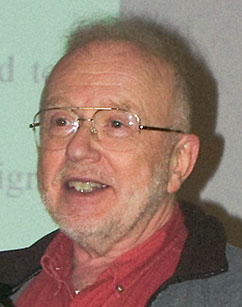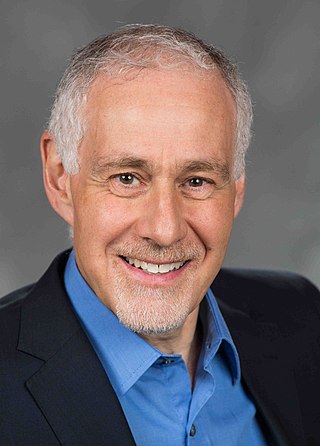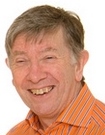
Alan Curtis Kay is an American computer scientist best known for his pioneering work on object-oriented programming and windowing graphical user interface (GUI) design. At Xerox PARC he led the design and development of the first modern windowed computer desktop interface. There he also led the development of the influential object-oriented programming language Smalltalk, both personally designing most of the early versions of the language and coining the term "object-oriented." He has been elected a Fellow of the American Academy of Arts and Sciences, the National Academy of Engineering, and the Royal Society of Arts. He received the Turing award in 2003.
The Association for Computing Machinery (ACM) is a US-based international learned society for computing. It was founded in 1947 and is the world's largest scientific and educational computing society. The ACM is a non-profit professional membership group, claiming nearly 110,000 student and professional members as of 2022. Its headquarters are in New York City.

Computer science is the study of computation, automation, and information. Computer science spans theoretical disciplines to practical disciplines. Computer science is generally considered an area of academic research and distinct from computer programming.
Software engineering is a systematic engineering approach to software development.

David Lorge Parnas is a Canadian early pioneer of software engineering, who developed the concept of information hiding in modular programming, which is an important element of object-oriented programming today. He is also noted for his advocacy of precise documentation.
Software engineering professionalism is a movement to make software engineering a profession, with aspects such as degree and certification programs, professional associations, professional ethics, and government licensing. The field is a licensed discipline in Texas in the United States, Engineers Australia(Course Accreditation since 2001, not Licensing), and many provinces in Canada.

Jack Joseph Dongarra is an American computer scientist and mathematician. He is the American University Distinguished Professor of Computer Science in the Electrical Engineering and Computer Science Department at the University of Tennessee. He holds the position of a Distinguished Research Staff member in the Computer Science and Mathematics Division at Oak Ridge National Laboratory, Turing Fellowship in the School of Mathematics at the University of Manchester, and is an adjunct professor in the Computer Science Department at Rice University. He served as a faculty fellow at the Texas A&M University Institute for Advanced Study (2014–2018). Dongarra is the founding director of the Innovative Computing Laboratory at the University of Tennessee. He was the recipient of the Turing Award in 2021.
Computer ethics is a part of practical philosophy concerned with how computing professionals should make decisions regarding professional and social conduct.

Robert L. Cook is a computer graphics researcher and developer, and the co-creator of the RenderMan rendering software. His contributions are considered to be highly influential in the field of animated arts.
Joyce Currie Little is a computer scientist, engineer, and educator. She was a professor and chairperson in the Department of Computer and Information Sciences at Towson University in Towson, Maryland.

Jeffrey Adgate "Jeff" Dean is an American computer scientist and software engineer. Since 2018, he is the lead of Google AI, Google's AI division.
Lori A. Clarke is an American computer scientist noted for her research on software engineering.
Leon Joel Osterweil is an American computer scientist noted for his research on software engineering.
This article gives an overview of professional ethics as applied to computer programming and software development, in particular the ethical guidelines that developers are expected to follow and apply when writing programming code, and when they are part of a programmer-customer or employee-employer relationship. These rules shape and differentiate good practices and attitudes from the wrong ones when creating software or when making decisions on a crucial or delicate issue regarding a programming project. They are also the basis for ethical decision-making skills in the conduct of professional work.

Alexander L. Wolf is a Computer Scientist known for his research in software engineering, distributed systems, and computer networking. He is credited, along with his many collaborators, with introducing the modern study of software architecture, content-based publish/subscribe messaging, content-based networking, automated process discovery, and the software deployment lifecycle. Wolf's 1985 Ph.D. dissertation developed language features for expressing a module's import/export specifications and the notion of multiple interfaces for a type, both of which are now common in modern computer programming languages.
Cherri M. Pancake is an ethnographer and computer scientist who works as a professor of electrical engineering and computer science and Intel Faculty Fellow at Oregon State University, and as the director of the Northwest Alliance for Computational Science & Engineering. She is known for her pioneering work on usability engineering for high performance computing. In 2018 she was elected for a two-year term as president of the Association for Computing Machinery.
Robert B. Schnabel is an American computer scientist. He was executive director and CEO of the Association for Computing Machinery (ACM) from November 1, 2015 to 2017. He is now professor and external chair of computer science at University of Colorado Boulder.

Simon Rogerson is lifetime Professor Emeritus in Computer Ethics at the Centre for Computing and Social Responsibility (CCSR), De Montfort University. He was the founder and editor for 19 volumes of the Journal of Information, Communication and Ethics in Society. He has had two careers; first as a technical software developer and then in academia as reformer. He was the founding Director of CCSR, launching it in 1995 at the first ETHICOMP conference which he conceived and co-directed until 2013. He became Europe's first Professor in Computer Ethics in 1998. His most important research focuses on providing rigorously grounded practical tools and guidance to computing practitioners. For his leadership and research achievements in the computer and information ethics interdisciplinary field he was awarded the fifth IFIP-WG9.2 Namur Award in 2000 and the SIGCAS Making a Difference Award in 2005.
ACM Student Research Competition is an annual multi-tiered research presentation competition conducted by Association for Computing Machinery (ACM) and Microsoft. The competition spans more than 20 major ACM conferences, hosting special poster sessions to showcase research at the undergraduate and graduate level. Selected semi-finalists add a slide presentation and compete for prizes in both undergraduate and graduate categories based on their knowledge, contribution, and quality of presentation. Those taking first place at the second-level competitions are invited to compete in the annual Grand Finals. Three top students in each category are selected as winners each year, representing approximately the top 1-2% of competing students.

Sergiy A. Vilkomir was a Ukrainian-born computer scientist.








